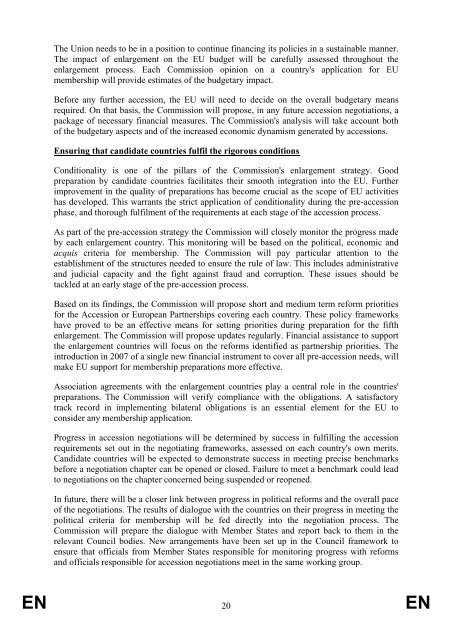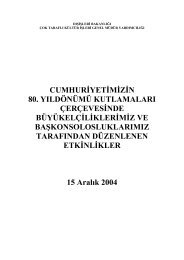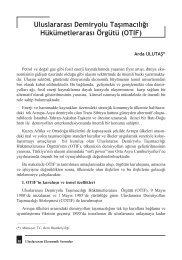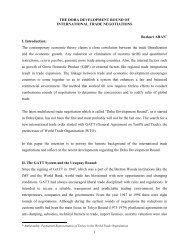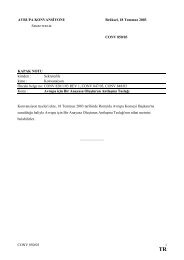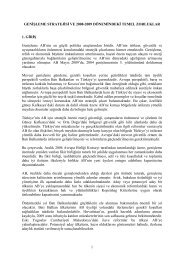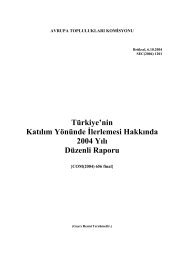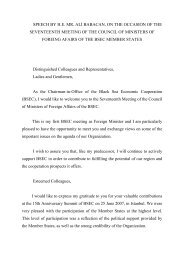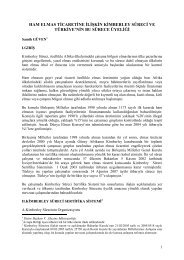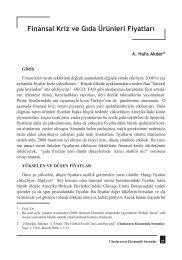Enlargement Strategy and Main Challenges 2006 - 2007
Enlargement Strategy and Main Challenges 2006 - 2007
Enlargement Strategy and Main Challenges 2006 - 2007
Create successful ePaper yourself
Turn your PDF publications into a flip-book with our unique Google optimized e-Paper software.
The Union needs to be in a position to continue financing its policies in a sustainable manner.<br />
The impact of enlargement on the EU budget will be carefully assessed throughout the<br />
enlargement process. Each Commission opinion on a country's application for EU<br />
membership will provide estimates of the budgetary impact.<br />
Before any further accession, the EU will need to decide on the overall budgetary means<br />
required. On that basis, the Commission will propose, in any future accession negotiations, a<br />
package of necessary financial measures. The Commission's analysis will take account both<br />
of the budgetary aspects <strong>and</strong> of the increased economic dynamism generated by accessions.<br />
Ensuring that c<strong>and</strong>idate countries fulfil the rigorous conditions<br />
Conditionality is one of the pillars of the Commission's enlargement strategy. Good<br />
preparation by c<strong>and</strong>idate countries facilitates their smooth integration into the EU. Further<br />
improvement in the quality of preparations has become crucial as the scope of EU activities<br />
has developed. This warrants the strict application of conditionality during the pre-accession<br />
phase, <strong>and</strong> thorough fulfilment of the requirements at each stage of the accession process.<br />
As part of the pre-accession strategy the Commission will closely monitor the progress made<br />
by each enlargement country. This monitoring will be based on the political, economic <strong>and</strong><br />
acquis criteria for membership. The Commission will pay particular attention to the<br />
establishment of the structures needed to ensure the rule of law. This includes administrative<br />
<strong>and</strong> judicial capacity <strong>and</strong> the fight against fraud <strong>and</strong> corruption. These issues should be<br />
tackled at an early stage of the pre-accession process.<br />
Based on its findings, the Commission will propose short <strong>and</strong> medium term reform priorities<br />
for the Accession or European Partnerships covering each country. These policy frameworks<br />
have proved to be an effective means for setting priorities during preparation for the fifth<br />
enlargement. The Commission will propose updates regularly. Financial assistance to support<br />
the enlargement countries will focus on the reforms identified as partnership priorities. The<br />
introduction in <strong>2007</strong> of a single new financial instrument to cover all pre-accession needs, will<br />
make EU support for membership preparations more effective.<br />
Association agreements with the enlargement countries play a central role in the countries'<br />
preparations. The Commission will verify compliance with the obligations. A satisfactory<br />
track record in implementing bilateral obligations is an essential element for the EU to<br />
consider any membership application.<br />
Progress in accession negotiations will be determined by success in fulfilling the accession<br />
requirements set out in the negotiating frameworks, assessed on each country's own merits.<br />
C<strong>and</strong>idate countries will be expected to demonstrate success in meeting precise benchmarks<br />
before a negotiation chapter can be opened or closed. Failure to meet a benchmark could lead<br />
to negotiations on the chapter concerned being suspended or reopened.<br />
In future, there will be a closer link between progress in political reforms <strong>and</strong> the overall pace<br />
of the negotiations. The results of dialogue with the countries on their progress in meeting the<br />
political criteria for membership will be fed directly into the negotiation process. The<br />
Commission will prepare the dialogue with Member States <strong>and</strong> report back to them in the<br />
relevant Council bodies. New arrangements have been set up in the Council framework to<br />
ensure that officials from Member States responsible for monitoring progress with reforms<br />
<strong>and</strong> officials responsible for accession negotiations meet in the same working group.<br />
EN 20 EN


